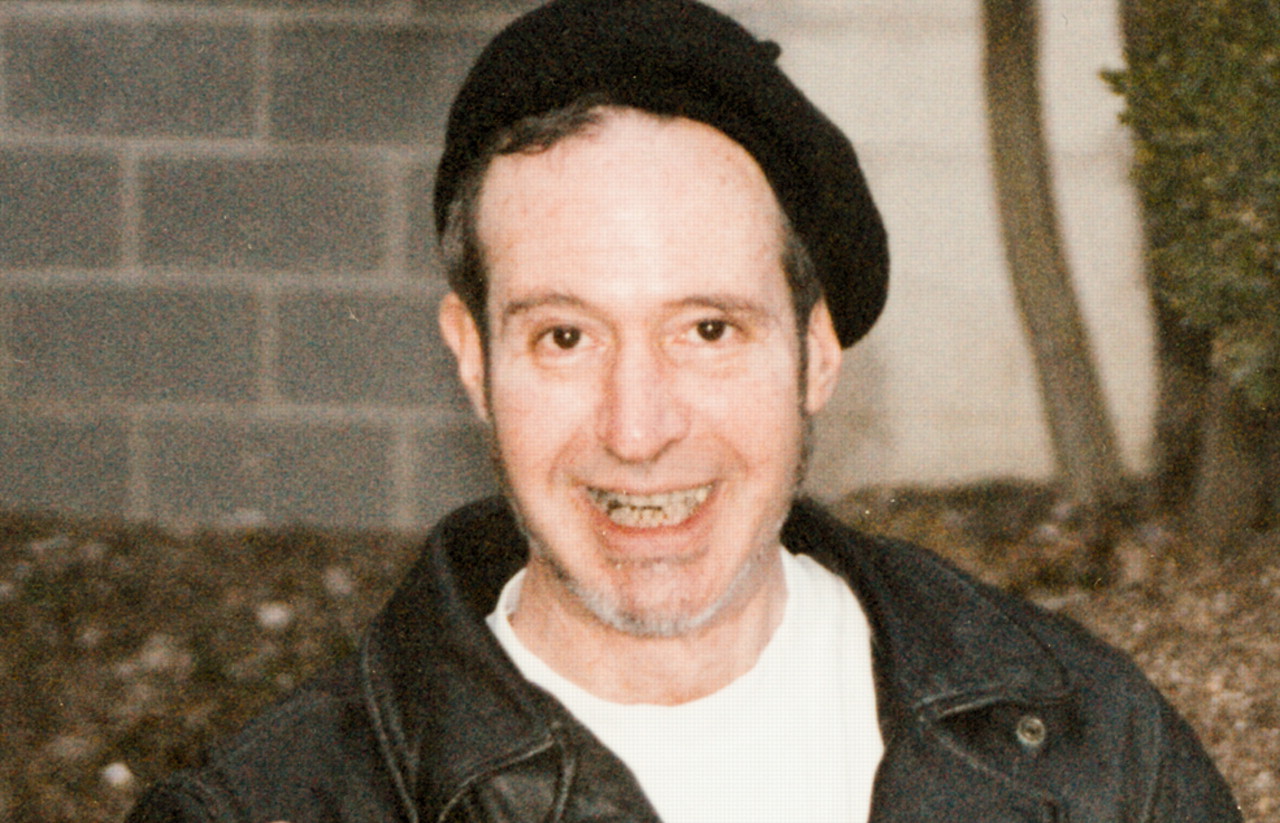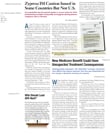Everyone needs a chance to kick back and relax, shed the stress of the day, and just be themselves in the company of friends who understand them.
Every other Wednesday night at the Outback Steakhouse in Bethesda, Md., members of the Bethesda Beatniks Supper Club get together to do just that.
To see them seated around several large tables that have been pulled together in the center of the bustling restaurant, one would not guess that the majority have faced great adversity throughout their lives, including homelessness, multiple hospitalizations, job loss, stigma, and alienation from family—or in some cases, total dependence on family.
The diners include a college student, a Ph.D.-level mathematician, a construction worker, and a teacher. Though they vary in age, gender, and race, the common bond that draws them together is serious mental illness.
“The participants greatly value the opportunity to get out of the house every couple of weeks and socialize,” observed Peter Warner, or“ Beatnik Pete,” as he prefers to be called this Wednesday evening.“ Many people with mental illness are socially isolated, not only from their peers but from society at large,” he told Psychiatric News.
Warner is founder of the supper club, which began five years ago when he and several friends began dining out together after attending meetings of the Depressive and Related Disorders Association in Bethesda. Through word of mouth, the outings evolved into a supper club for people with mental illness.
Now, he recruits people by speaking about the supper club to patients on psychiatric inpatient units and through ads in newsletters of the National Alliance for the Mentally Ill.
Although many of the supper-club members are high functioning, some are not. “We don't discriminate on the basis of functionality,” Warner said, and “we do not accept people who habitually use hard street drugs or who are practicing alcoholics.”
Warner was a successful journalist on the West Coast in the early 1980s when he experienced the first symptoms of what would be diagnosed later as schizoaffective disorder. By his account, he was hospitalized as many as 20 times over the next several years.
For more than a decade, Warner was unable to attend graduate school or hold a steady job, he said. “During that time I tried both business and law school and flunked out of those quite promptly.”
Since the advent of the second-generation antipsychotic medications, Warner said, “things have gone smoothly for me.”
Now 50, Warner is working as a journalist and photographer. Though he has come a long way from the days when he was in and out of the hospital—a combination of medications helps keep his symptoms under control—he noted that stigma “is very much alive.”
Warner insists on being upfront with business colleagues about his mental illness. As a result, he said, “I encounter stigma and discrimination on a regular basis.”
The supper club has proved to be a respite from stigma for Warner and others like him. “The supper club is a place where there is no stigma—everyone is accepted,” he said.
About half of the 15 to 25 regular participants have schizoaffective disorder or schizophrenia, while most of the others have bipolar disorder, he said. Dinner conversation is as likely to cover topics such as medication side effects as it is politics, sports, and the weather.
“Ron Smith,” 61, found out about the dinners over a year ago through an article in a local newspaper and has been attending them ever since. He described himself as a “late bloomer” because he was a married father of four by the time he experienced his first psychotic break at age 37.
At the time, Smith was working as a government attorney. After a few weeks of feeling anxious and depressed, “I was standing in my boss's office discussing a legal matter and began speaking nonsense,” he told Psychiatric News. “Within a couple of days, I was in the hospital.”
These days, Smith co-facilitates a support group for people with schizophrenia and schizoaffective disorder and does volunteer work.
He said he enjoys meeting new people through the dinner club and credits Warner with its success. “Pete is half social worker and half entrepreneur, and that's why this group works.” Warner pointed out that some of the members of the club have “blossomed socially” by attending the dinners.
Through the dinners, “Lauren Arnold,” 47, said, “I have figured out how to be without my parents in a group.” Her older brother, who accompanied her to the dinner, commented, “It's nice for her to have a reliable social activity in a supportive environment.”
For “Mark Bowser,” a 53-year-old construction worker, the dinners provide an opportunity to talk about issues related to his mental illness that are verboten elsewhere. “Unlike at work, it's OK to talk about your depression or your experiences with hospitalization here,” he noted.
Others in the group said the dinners were the only occasions during which they socialized with peers.
“Socialization is good for them—they need to learn how to listen, how to be a friend,” said Marian Elmi, R.N., one of the few regulars who does not have a mental illness. She is a medical-surgical nurse at Washington Hospital Center in Washington, D.C., who befriended Warner after hiring him to tutor her in English when she arrived in the United States from Somalia in 1987.
According to William Narrow, M.D., director of the American Psychiatric Institute for Research and Education's psychopathology research program and a community psychiatrist, “consumer-run social groups fill a niche, because this type of rehabilitation is not usually covered by private insurance and may be increasingly limited by public insurance.”
He also pointed out that “though social groups are beneficial, and for some essential, it is difficult to convince insurance companies that these activities are something that should be covered like medications and other types of treatment.”
Warner said he is interested in seeing the supper club spread to other parts of the country and would be interested in helping mental health consumers establish their own chapters.
“We're trying to get the word out to the professional community—from a psychiatrist's standpoint, this is an excellent opportunity for their patients to socialize,” he said.
Information about the Bethesda Beatniks Supper Club is available by contacting Peter Warner at (301) 279-2578. ▪

